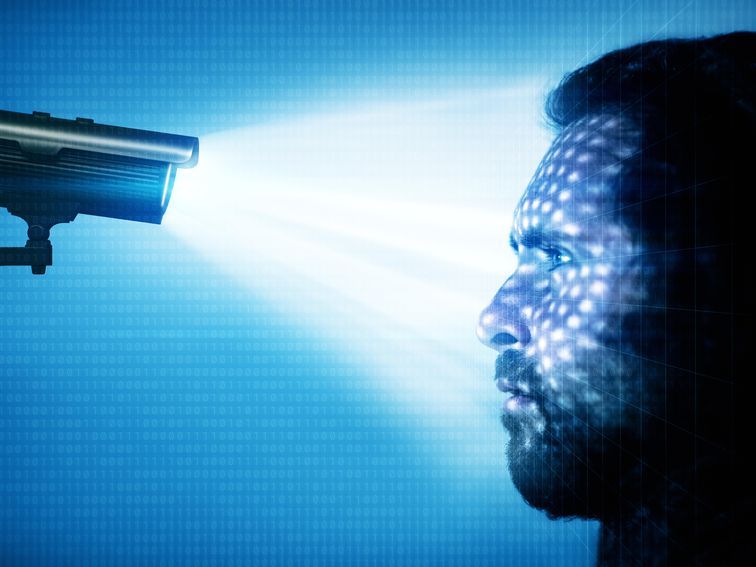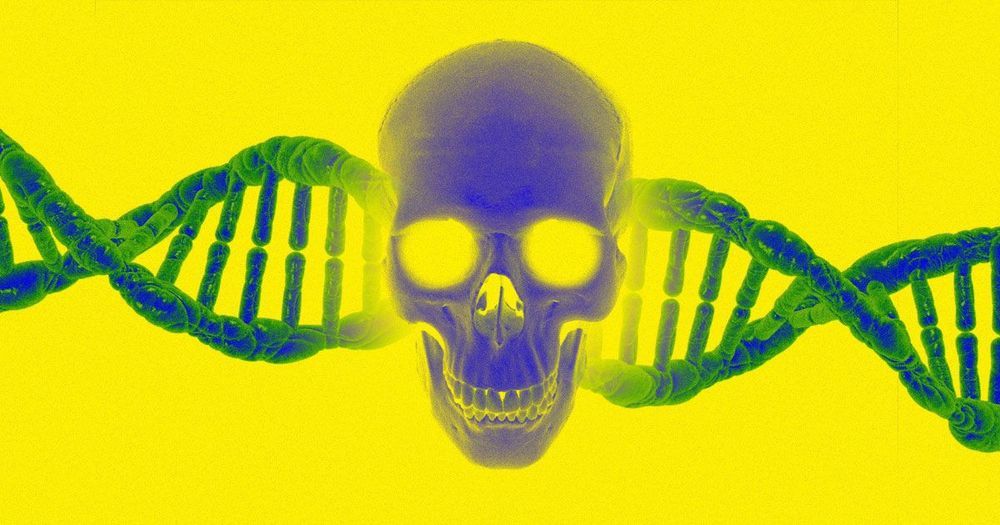Another Vertical Garden post from Amber. Read more about this topic on Garden Culture Magazine.
Category: robotics/AI – Page 2,282

We Need to Replace Moore’s Law to Make Way For Quantum Computers, But What’s Next?
A new disruptive technology is on the horizon and it promises to take computing power to unprecedented and unimaginable heights.
And to predict the speed of progress of this new “quantum computing” technology, the director of Google’s Quantum AI Labs, Hartmut Neven, has proposed a new rule similar to the Moore’s Law that has measured the progress of computers for more than 50 years.
But can we trust “Neven’s Law” as a true representation of what is happening in quantum computing and, most importantly, what is to come in the future? Or is it simply too early on in the race to come up with this type of judgement?
Earthworm-Inspired Robot Wins $10,000 Student Scholarship
THE INSTITUTE Teenager Ari Firester watched on television last year as members of a youth soccer team were saved from a flooded cave in Chiang Rai Province, Thailand. The two-week-long effort, which left one rescuer dead, inspired Firester to create a technology that might prevent such a tragedy from occurring again.
Firester, 16, a junior at Hunter College High School in New York City, created “Wormbot,” an earthworm-inspired robot capable of maneuvering in narrow spaces. The project was displayed at Intel’s annual International Science and Engineering Fair, held in May in Phoenix. His invention earned him the US $10,000 IEEE Presidents’ Scholarship, which is given at the fair.
Controlled by an Arduino microcontroller and built with off-the-shelf items, the robot makes wormlike movements by using eight retractable claws along its length to grip its surroundings and prevent it from slipping. The modular robot is powered by compressed air. The control and power components are connected to the robot through a thin, plastic air tube. By using inflatable actuators, its body can be lengthened, shortened, or bent.

A robot dispatcher and a self-driving truck just sent a load ‘without any human involvement’
This week, two companies say that their technologies were able to work together successfully broker and transport a load without any human help.
On Thursday, July 8, Starsky Robotics and Loadsmart issued an announcement about the trucking industry’s first autonomous dispatch and delivery.
The companies say that this “marks the first time an autonomous company and a digital broker have collaborated to price, book and load a shipment without any human involvement.”

Singularity 6 raises $16.5M from Andreessen Horowitz to create a ‘virtual society’
When Fortnite reached stratospheric popularity early last year, there were undoubtedly an awful lot of VCs on the sidelines looking enviously at the massive platform and wondering what opportunities could be gleaned from its rapid rise.
Epic Games went on to raise later that year at a nearly $15 billion valuation so some of those investors decided to invest directly in the Fortnite creator’s continued ascent, but others have been looking to get in on the ground floor of new operations that are aiming to rethink the line between video games and social networks.
Today, Andreessen Horowitz announced that it’s leading the $16.5 million Series A of a stealthy gaming startup called Singularity 6. The startup’s ex-Riot Games co-founders claim their venture is less focused on building a button-mashing competitive shooter than it is a “virtual society” where users can develop relationships with in-game characters powered by “complex AI”.

Amazon’s facial recognition software can now spot fear
Amazon’s controversial facial recognition technology, called Rekognition, has a new skill. It can now spot fear. The company says it recently launched updates to Rekognition’s facial analysis features, including improved age estimation and the addition of fear to its emotion detection.
“We have improved accuracy for emotion detection (for all 7 emotions: ‘Happy,’ ‘Sad,’ ‘Angry,’ ‘Surprised,’ ‘Disgusted,’ ‘Calm’ and ‘Confused’) and added a new emotion: ‘Fear,’” according to an update from Amazon on Monday. “Lastly, we have improved age range estimation accuracy; you also get narrower age ranges across most age groups.”


Future Bioweapons Could Kill People With Specific DNA
In the future, we may have to deal with biological weapons that target specific groups of people, passing over everyone else.
That’s according to a new report out of Cambridge University’s Centre for the Study of Existential Risk reviewed by The Telegraph. In it, the Cambridge researchers argue that world governments have failed to prepare for futuristic weapons based on advanced technology like artificial intelligence and genetic manipulation — or even a killer pathogen designed to kill only people of a particular race.
DARPA Subterranean Challenge: Tunnel Circuit Preview
The Tunnel Circuit of the DARPA Subterranean Challenge starts later this week at the NIOSH research mine just outside of Pittsburgh, Pennsylvania. From 15–22 August, 11 teams will send robots into a mine that they’ve never seen before, with the goal of making maps and locating items. All DARPA SubT events involve tunnels of one sort or another, but in this case, the “Tunnel Circuit” refers to mines as opposed to urban underground areas or natural caves. This month’s challenge is the first of three discrete events leading up to a huge final event in August of 2021.
While the Tunnel Circuit competition will be closed to the public, and media are only allowed access for a single day (which we’ll be at, of course), DARPA has provided a substantial amount of information about what teams will be able to expect. We also have details from the SubT Integration Exercise, called STIX, which was a completely closed event that took place back in April. STIX was aimed at giving some teams (and DARPA) a chance to practice in a real tunnel environment.
For more general background on SubT, here are some articles to get you all caught up:

It’s 2043. We Need a New American Dream for the A.I. Revolution
Nevertheless, to date, most of the wealth generated by advances in A.I. and robotics has been acquired by the executives of technology companies. It’s time for the benefits of the A.I. revolution to be broadly distributed through an expanded social safety net.
Unfortunately, members of Congress are taking the opposite path and have proposed cuts to a range of social programs. Several hundred thousand people arrived in Washington on Saturday to protest these cuts. During the demonstration, masked agitators threw rocks at the autonomous drones deployed for crowd control; in response, drones dispensed pepper spray on the protesters below, causing a stampede. More than 20 people were injured and treated at local hospitals; one protester died of his injuries on Monday. The police detained 35 people at the scene; 25 more arrests have been made since then, after authorities used facial recognition technology to identify protesters from surveillance video.
Punishing the poor who were harmed by economic disruptions has been a mistake repeated throughout American history. During the Industrial Revolution, machines displaced many artisans and agricultural workers. To deter these unemployed workers from seeking public relief, local governments set up poorhouses that required residents to perform hard labor. And between 1990 and 2020, the federal government — and some state governments — repeatedly cut social program spending even as middle-class jobs disappeared as a result of outsourcing and automation. Workers who didn’t have the skills to thrive in the knowledge economy were resigned to join the underclass of service workers.